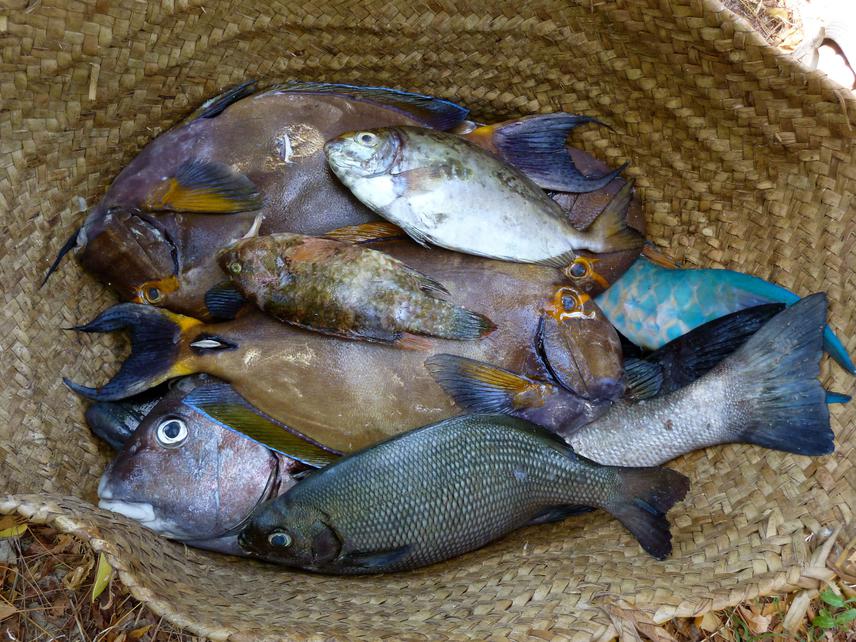Angela Yang
The project aims to assess the impact of fisheries management on the livelihoods of fish traders on the coast of Kenya. The illegal use of beach seines have been shown to degrade habitat and capture a high number of juvenile fish, and this study will show how beach seines affect the socioeconomics of the fish traders whose livelihoods rely on marine ecosystems.

Fish catch.
In an increasingly human-dominated world, the success and sustainability of conservation projects hinges on the participation and support of local communities. Nowhere is this more evident than in fragile coastal environments where food security and livelihoods are directly threatened by rapidly compounding anthropogenic threats. In Kenya, millions of people rely on artisanal marine fisheries as their primary economic activity, but management of these resources has lagged behind population growth and environmental changes.
Specifically, this study will assess the use of beach seines, a destructive fishing practice, on communities in order to guide sustainable collaborative management strategies. The use of beach seines in Kenya has been banned since 2001 due to coral damage and the high capture rates of juvenile fish, but because of the lack of law enforcement, their use continues. Beach seine fishers justify the illegal use of destructive fishing gear as their main source of livelihood income and that of fish traders, but the underlying reasons may be more complex.
While fishers have been studied extensively, there have been few studies on fish traders who are important members of coastal communities as well as components of the fish value chain. Fish traders purchase fish directly from fishers at designated landing sites: fish dealers sell fresh fish to local markets, hotels and restaurants or directly to tourists; fish fryers clean and fry fish to sell to end consumers. Fish fryers are also quite often women, called “Mama Karangas” or “fry women”. These traders are affected by and can influence fisheries management.
My project uses a stratified random sampling approach to survey fish traders at selected fish landing sites along the Kenyan coast that:
- do not use beach seines
- use beach seines
- stopped beach seines
- use seasonal beach seines
The results will be statistically analysed to clarify the linkage between the use of destructive fishing gear and the livelihoods of small-scale fish traders in order to optimize co-management that focus on long-term rather than short-term benefits. Additionally, the survey results will elucidate variables that enhance or diminish income, provide insight into awareness of marine conservation issues, and potentially identify alternative income opportunities, with the ultimate goal to improve both conservation and livelihoods.